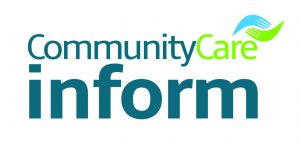
Social workers will receive new guidance on removing newborn babies in child protection cases after an inquiry found inconsistent practice and legal knowledge gaps.
Reviews of research and case law published today found a lack of time being dedicated to pre-birth assessments, meaning parents were not given sufficient time to make changes that would potentially avoid care proceedings, and failures to follow due process leading to injustice.
The publications by the Nuffield Family Justice Observatory, which aims to make family justice practice more evidence-based, come in the wake of a sharp rise in the number of newborns taken into care.
Sharp rise in removing infants
The Nuffield FJO’s Born into care in England report last year found that the number of care proceedings relating to infants under one more than doubled from 2007-8 to 2016-17, during which time they rose from 32% to 42% of all cases.
The guidelines will be developed over the next 18 months by academics within the Nuffield FJO, who said it would involve parents, social workers and health professionals in process. They will then be piloted in eight areas over the subsequent six months, with a view to them then being adopted as national guidance across England and Wales.
The Nuffield FJO said they would be “the first national, evidence-informed good practice guidelines for professionals involved in the process of removing newborn babies”.
A rapid research review found a lack of evidence on pre-birth assessment and infant removal overall, with most of it being qualitative work focusing on the views of birth mothers, rather than birth fathers, and health professionals rather than social workers.
Insufficient professional knowledge and time
However, consistent findings in the literature included:
- Insufficient time being provided for robust pre-birth assessments, due to a lack of priority being given to these cases, meaning parents did not have enough opportunity to change.
- The importance of collaborative relationships between birth families and professionals, as birth mothers were sensitive to being judged by practitioners.
- The psychological impact of removal on birth families and babies.
- Professionals lacking knowledge, including because of variation in national and local guidance on pre-birth assessments and interventions.
These issues were highlighted in the six studies that included the perspectives of social workers. Practitioners reported delaying pre-birth assessments due to high caseloads, and reported a lack of knowledge of child development and the impact of drug use by expectant mothers.
Professional power
They also highlighted their awareness of their professional power and the impact of this on birth mothers during pregnancy.
A separate review of relevant case law found that the legal framework was generally effective in keeping children safe. However, some of the 20 cases studied showed how “poor practice, for example failure to follow due process, or poor understanding of the legal framework can lead to injustice and unfairness”.
All of the cases highlighted the need for a more co-ordinated response to cases where newborns are removed at birth and more attention being paid to the trauma suffered by parents subject to repeat removals, the review said.
 Resources to help with pre-birth assessments on Community Care Inform
Resources to help with pre-birth assessments on Community Care Inform
Community Care Inform’s guide to pre-birth risk assessments explores cases when pre-birth assessments should be carried out by social workers; working with parents, other family and different agencies; what to include and useful tools and frameworks when carrying out an assessment. It includes case examples with suggestions on what workers would need to do it that situation.
Not sure if you have access to Community Care Inform through your organisation or have other questions? Find help here.


 Family help: one local authority’s experience of the model
Family help: one local authority’s experience of the model  ‘I spent the first three months listening’: how supportive leadership can transform children’s services
‘I spent the first three months listening’: how supportive leadership can transform children’s services  How senior leaders in one authority maintain a culture of excellence
How senior leaders in one authority maintain a culture of excellence  How staff support ensures fantastic outcomes for children and families
How staff support ensures fantastic outcomes for children and families  Workforce Insights – showcasing a selection of the sector’s top recruiters
Workforce Insights – showcasing a selection of the sector’s top recruiters 

 Facebook
Facebook X
X LinkedIn
LinkedIn Instagram
Instagram
Comments are closed.